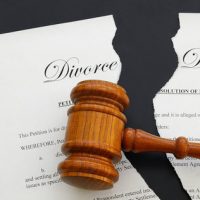How are Retirement Accounts Divided During a Florida Divorce?

Retirement accounts like pension plans, 401Ks, IRAs, and annuities are typically determined to be marital assets, even though they are only in one spouse’s name. In many cases, a retirement account that was started prior to the marriage which may present some complications during divorce. If there were no additions and deposits during the marriage, then it may be held to be a separate asset. However, if contributions were added to the retirement accounts during the course of the marriage, that portion could be subject to equitable distribution.
Equitable Distribution vs Community Property State
It’s important to point out that Florida is not a community property state, so assets don’t automatically go in a 50/50 split. Florida is an equitable distribution state, which means the courts will use a series of factors to divide up the assets and decide what is fair to each party.
Benefit Plan versus Defined Contribution Accounts
Retirement plans typically fall under two categories, defined benefits and defined-contribution plans. In defined contribution plans, like 401K retirement plans, you are required to put your own money in. A defined benefit plan is where the employer pays the entire amount and you’re promised a set payout at retirement time. This is typically known as a pension plan.
The type of plan can determine options of how the distribution might occur. With defined benefit plans, your ex might be able to choose a lump sum payment, a percentage of the current worth, or they might prefer to collect payment at the time of retirement. With defined contribution accounts, the balance might be multiplied by a portion of vesting and then split between you both.
How Retirement Plans are Divided
If the court determines that a retirement account needs an asset distribution during the divorce, the court will issue a special order called a Qualified Domestic Relations Order (QDRO). This is a special domestic relations order that recognizes a spouse’s right to receive all, or a portion, of the retirement benefits that are payable under the other spouse’s account.
Florida Government Pensions and Military Benefits
State of Florida government-issued pension plans can present a more complicated scenario. These plans are not bound by the Employee Retirement Income Security Act (ERISA), which is what forms the basis for QDRO.
A military member who is entitled to receive retirement benefits from the military will see that included in the divorce distribution. The Uniformed Services Former Spouse Protection Act is what governs disbursements here. The courts are bound by a specific set of guidelines which order how much and to whom to distribute the retirement benefits.
Protecting Yourself from Tax Penalties
It’s important to handle your retirement accounts very carefully otherwise you might find yourself on the receiving end of hefty tax penalties. Do not just cash out your retirement accounts to settle whatever decree was issued during your divorce. Having a Florida divorce attorney is important because he or she can help get the QDRO, which will help protect you from early withdrawal penalties.
Retaining a Florida Divorce Attorney
Retaining the right Florida divorce attorney is crucial during a contested divorce where there are significant assets, especially retirement accounts. The experienced Boca Raton based team at Schwartz | White are well-versed in the nuances of asset distribution during a divorce. Contact our office today to schedule a consultation and let us help protect your retirement accounts.


